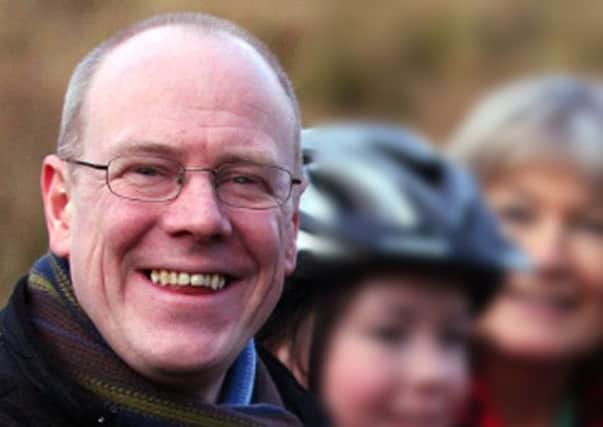Ban ‘gobbledegook phrases’ urges SNP MSP


Discussion over the Scottish Government’s Community Empowerment Bill has included phrases such as “peer-support”, “top-down capacity building”, “community anchor organisations” and “third sector interfaces”.
Kevin Stewart, convener of Holyrood’s Local Government Committee, said people may wonder: “What the hell is that all about?”
Advertisement
Hide AdAdvertisement
Hide AdExperts and MSPs acknowledged that they use “fancy words” that “exclude people from the discussion”.
Concerns were also raised that the Bill will simply empower those “who are already advantaged and empowered in society”.
Professor Annette Hastings, senior lecturer in urban studies at University of Glasgow, said: “I am concerned that there are insufficient safeguards in what’s currently proposed to ensure that additional support and positive discrimination is afforded to more disadvantaged groups.
“There’s a considerable body of research evidence, which is growing all the time, that more affluent social groups have the necessary skills, and cultural and social capital, to take advantage of opportunities that are put before them, and I think there’s a clear case that we need to take deliberate strategic action to ensure that more disadvantaged groups can avail themselves of the opportunities that are undoubtedly present in the Bill.”
Angus Hardie, chief executive of Scottish Community Alliance, said: “I think we could do much more around peer-support, in other words communities that have already developed their own capacity, I think they could be harnessed much more effectively in supporting other communities.
“I think traditionally we come in in a top-down fashion to communities and deliver programmes of capacity-building, and my feeling is that these generally miss the mark.”
Committee convener Kevin Stewart said: “We’ve heard the expressions ‘community anchor organisations’ and ‘third sector interfaces’.
“Going back to my own time as the chair of a social inclusion partnership I actually banned some of the gobbledegook phrases.
Advertisement
Hide AdAdvertisement
Hide Ad“Do you think these kind of things, and the kind of discussion that we are having here, often puts folk off from becoming involved in their communities, because they come, they listen to us sometimes and think: ‘what the hell is that all about?’”
Several experts and MSPs nodded in agreement.
Conservative MSP Cameron Buchanan said: “We shouldn’t be using fancy words for these things, because it does disadvantage people.”
Councillor David O’Neill, president of council umbrella group Cosla, said: “We do use language which excludes people from the discussion.
“As part of the work for the Commission For Strengthening Local Democracy we did a poll which told us that government is remote from communities, and what they meant was national government and local government, and that is partly down to the language that we use.”
North Lanarkshire councillor Harry McGuigan, Cosla community well-being and safety spokesman, said: “There was major issues in a housing estate in an area that I represented.
“I talked to the police, community development officers, social work, the professionals that knew how to go about social planning and social reconstruction.
“We held a major public meeting in one of the local schools, very well attended, and inside five minutes I could see some of the heads already shaking.
“After a quarter of an hour I could see lots of the heads going down and shaking.
Advertisement
Hide AdAdvertisement
Hide Ad“I realised quite quickly that this was because we had consulted with all of the experts, and some of the very influential community groups that operated in that area, but we hadn’t consulted with the real experts - the people living in that community experiencing what life is actually like in that community.”
SEE ALSO